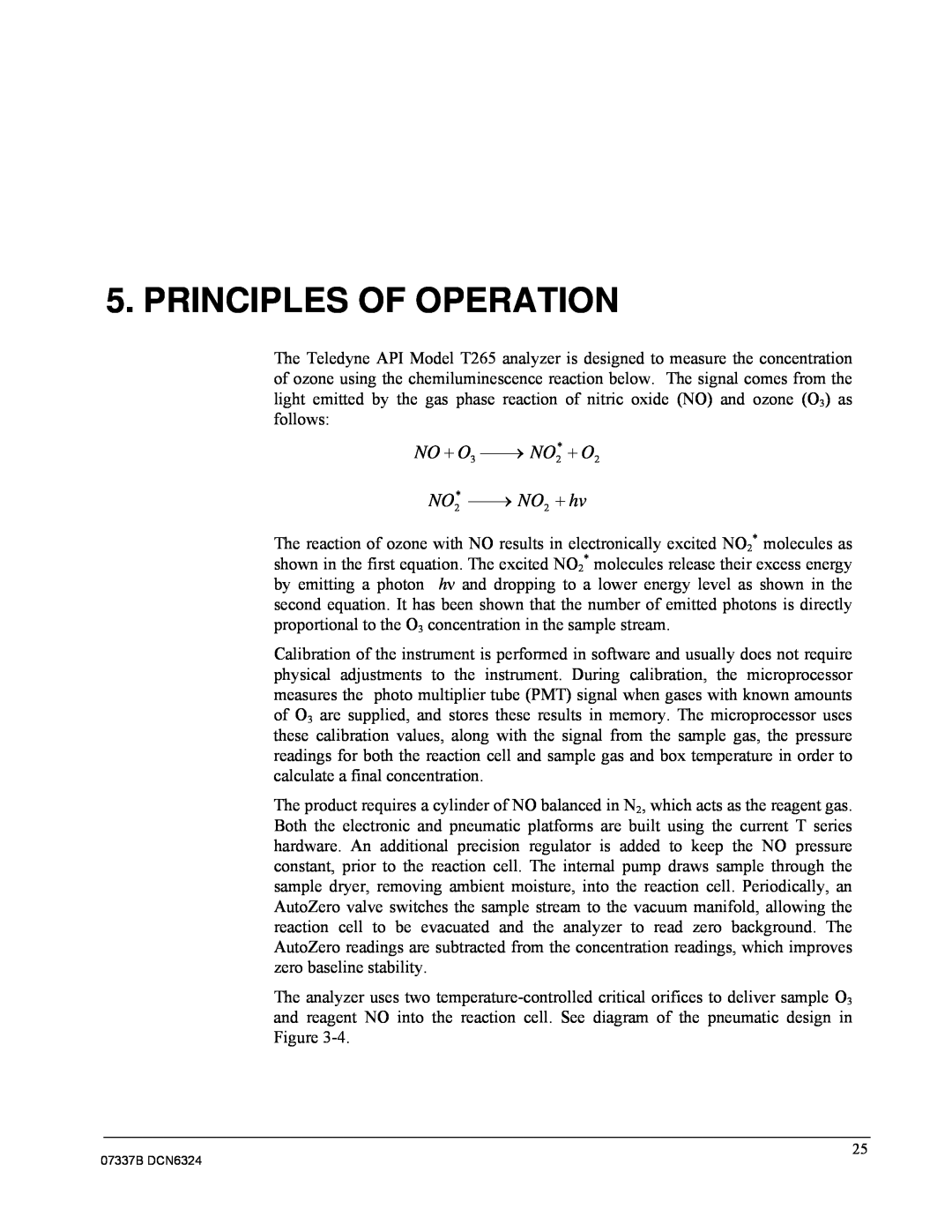5. PRINCIPLES OF OPERATION
The Teledyne API Model T265 analyzer is designed to measure the concentration of ozone using the chemiluminescence reaction below. The signal comes from the light emitted by the gas phase reaction of nitric oxide (NO) and ozone (O3) as follows:
NO O3 NO2* O2
NO2* NO2 hv
The reaction of ozone with NO results in electronically excited NO2* molecules as shown in the first equation. The excited NO2* molecules release their excess energy by emitting a photon hν and dropping to a lower energy level as shown in the second equation. It has been shown that the number of emitted photons is directly proportional to the O3 concentration in the sample stream.
Calibration of the instrument is performed in software and usually does not require physical adjustments to the instrument. During calibration, the microprocessor measures the photo multiplier tube (PMT) signal when gases with known amounts of O3 are supplied, and stores these results in memory. The microprocessor uses these calibration values, along with the signal from the sample gas, the pressure readings for both the reaction cell and sample gas and box temperature in order to calculate a final concentration.
The product requires a cylinder of NO balanced in N2, which acts as the reagent gas. Both the electronic and pneumatic platforms are built using the current T series hardware. An additional precision regulator is added to keep the NO pressure constant, prior to the reaction cell. The internal pump draws sample through the sample dryer, removing ambient moisture, into the reaction cell. Periodically, an AutoZero valve switches the sample stream to the vacuum manifold, allowing the reaction cell to be evacuated and the analyzer to read zero background. The AutoZero readings are subtracted from the concentration readings, which improves zero baseline stability.
The analyzer uses two
07337B DCN6324
25
